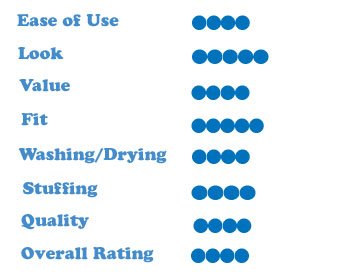Why Are So Many Women Suffering with Thyroid Problems?
This summer we are taking some time to discuss some current issues that are on our minds–issues that we do not know how to answer. We are relying on you, the Keeper of the Home readers, to weigh in as we wrestle with these often complex subjects.
Up until a couple years ago, I had never heard of thyroid problems. I don’t even think I knew where the thyroid was located in our bodies. Perhaps I didn’t even know this little organ existed!
But over the course of the past two years, I’ve discovered what a powerful organ the thyroid is! It regulates hormones throughout the body. These hormones affect metabolism, growth, development and body temperature!
But, sadly, I’ve also found out that an alarming number of women–young women–are experiencing thyroid problems today.
And so I’ve begged the question:
Why are so many women suffering with thyroid problems?

Image by jkirkhart35
What is the thyroid?
The thyroid is a butterfly-shaped organ that sits very low on your neck–along the windpipe. When the thyroid is normal in size, you should not be able to feel it.
What are problems associated with the thyroid?
There are actually quite a few problems that can be associated with the thyroid–ranging from a goiter (or enlarged thyroid) to various forms of thyroid disease to thyroid cancer. Graves Disease and Hashimotos’ are two diseases associated with the thyroid. Hashimotos’ is an autoimmune disease.
Symptoms of Problems with the Thyroid
There are a plethora of signs that may signal that something is wrong with your thyroid, including:
- You can feel your thyroid (indicating that you have a goiter–or enlarged thyroid).
- You have trouble losing–or trouble gaining–weight. (There are two extremes since the thyroid regulates the metabolism. If it is not properly functioning, it will be difficult for your body to regulate weight.)
- You have heart palpitations and/or excessive nervousness.
- You have brain fog or depression.
- You are extremely tired–or you have insomnia.
Many people shrug off these symptoms as being a part of menopause, aging or depression. In fact, I thought I had been experiencing postpartum depression.

My Story
When my second baby was close to a year old, I developed a persistent cough. What left me dumbfounded, though, was the fact that my cough was not accompanied by any other viral-like symptoms. It was simply a cough that would not go away.
This cough seemed to get worse at night when I lay down. And, sometimes, I felt like my airways were restricted while lying down–so much so that I began sleeping with several pillows that helped elevate my head.
I finally scheduled an appointment to see a doctor about the cough. I was shocked to find out that the cough was a symptom of an enlarged thyroid gland–a goiter.
The doctor immediately noticed the goiter protruding from my neck. The goiter had been pressing on my windpipe and causing irritation–the cough and trouble breathing when I reclined.
I asked her what could have caused the goiter, and she told me that it could be thyroid disease or even thyroid cancer. After a very scary 24 hours, she confirmed that I did not have cancer, but my thyroid levels were low enough to suggest that I had an underactive thyroid–or hypothyroidism.
I told the doctor that I did not want to be on any synthetic medications, so she put me on Armour thyroid, which is derived from a pig’s thyroid.
I was on this medication for several months…during which time I became pregnant with my third baby–shortly after my second baby turned a year old.
After my first trimester, my midwife sent me to see an endocronologist–to monitor my thyroid condition. However, the doctor looked at me like I was crazy: My levels were fine, she said. And I did not have a goiter.
To this day, I wonder if, perhaps, my levels were fine and I did not have a goiter because I was, after all, on the medicine.
After my third baby was born, my symptoms came back. In May of this year, I was diagnosed with adrenal fatigue by my chiropractor. Then, in June, I started the cough again, felt the constriction in my throat, and I felt that a goiter had formed.I went back to that same doctor. I do have a goiter, but my levels are “fine.” However, she went ahead and put me on Armour again to try to shrink the goiter–and to help my symptoms.
I sometimes wonder if my iodine levels are low since iodine deficiency can cause goiters, but the doctor told me there is no good test for this–and that most Americans are not low in iodine because it’s included in table salt and processed foods.
I don’t think she knew what to think when I told her I don’t eat processed foods and use real sea salt instead of table salt.
Could I be iodine deficient? It may be.
I want to get better. I don’t like being on medicine. In the past week, I have noticed that my hair is starting to fall out and that I feel jittery. But on days when I skip my pill, I feel like I can barely function–barely drag myself out of bed.
It’s like I’m going from one extreme to another–which I hear is common with thyroid conditions.
But, then again, I wonder if this all goes back to the adrenal fatigue. And I wonder if the thyroid condition caused the adrenals to stop working, or if the adrenals affected the thyroid.
I do not have answers, but I know some of you do.
Why do you think so many women are suffering with thyroid problems today? Have you ever experienced thyroid problems? What advice do you have to share?
*Note: At a nurse’s suggestion, I started halving my pills. I have noticed that my symptoms are much, much better when I am taking half the dose!
Sources/Resources:
Disclaimer: Today’s post is on thyroid problems. None of the Keeper of the Home writers are health experts. We are simply women who enjoy researching about health. We encourage you to seek all medical advice from your trusted healthcare provider.





